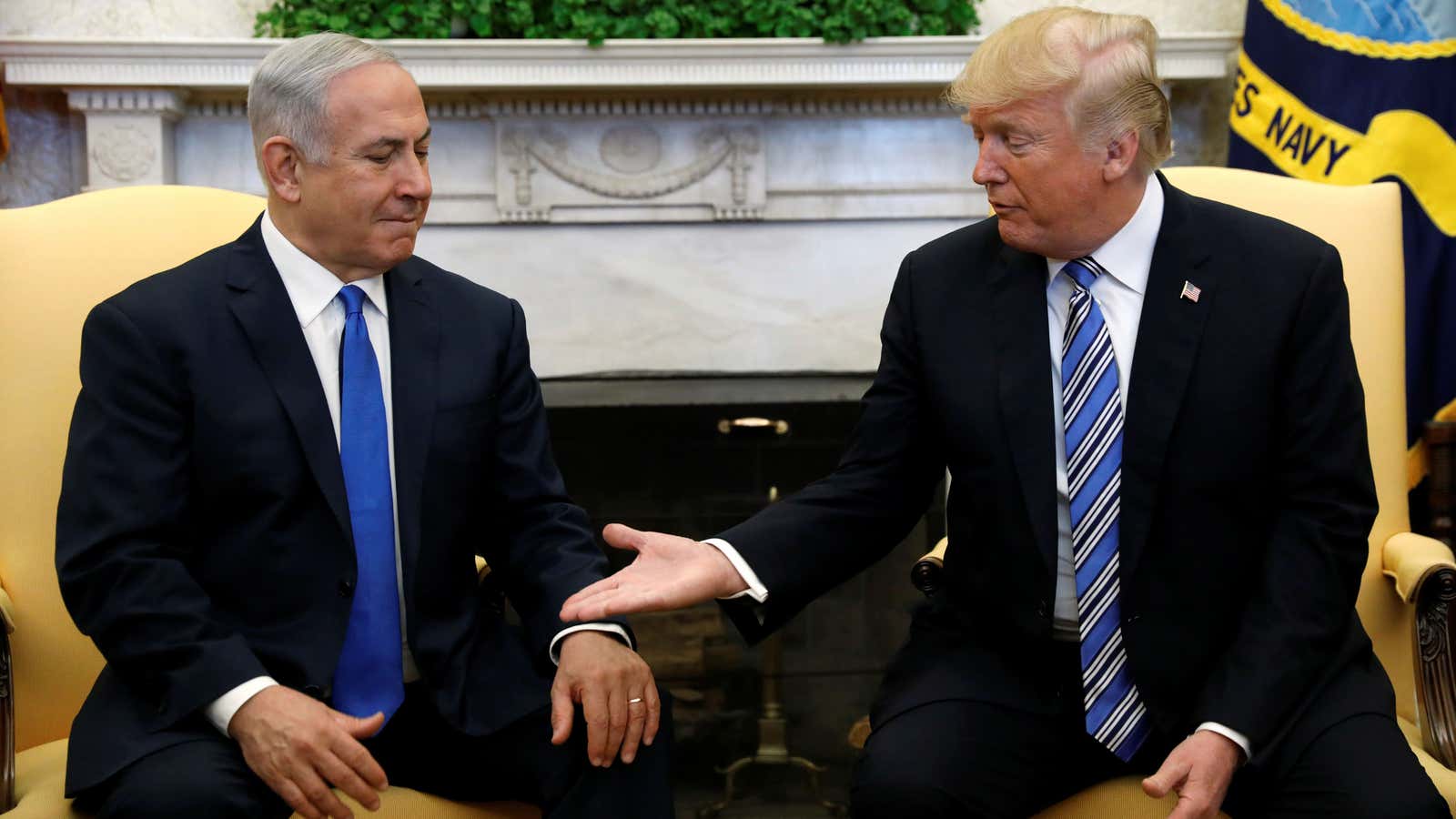As president Donald Trump threatens to leave an agreement designed to curb Iran’s nuclear weapons program, the natural concern is that Tehran will start building a bomb.
But that shouldn’t be the main worry, say two experts with very different perspectives. Quartz spoke to Alex Vatanka, a senior fellow at the Middle East Institute who supports the Iran deal, and Behnam Ben Taleblu, a research fellow at the Foundation for Defense of Democracies, who is critical of it.
What is the Iran deal?
The deal, finished in 2015, lifted sanctions that have helped cripple Iran’s economy over decades. In exchange, Tehran halted its uranium enrichment program and shipped the bulk of its nuclear fuel out of the country. Trump is expected (paywall) to quit the agreement in an announcement this afternoon (May 8), but it’s unclear what exactly that would entail. He could announce a temporary withdrawal, pending renegotiation, or he could abandon it entirely and reinstate the full gamut of sanctions, which could also hit European companies wanting to trade with Iran.
At present, Iran has the international community on its side; only the US is flirting with walking away. Iranian president Hassan Rouhani said yesterday (May 7) that even if the US leaves the deal, Iran would want to stay in it as long as the terms are upheld by the remaining signatories France, Germany, the UK, Russia, and China. Making any overt steps towards developing a bomb would immediately jeopardize Iran’s international goodwill, both experts say.
“If [Iranian leaders] go talking about the capacity to have a bomb in two-three months’ time, just the word ‘bomb’ would make it difficult for the Europeans to be supportive of the agreement,” says Vatanka.
What the United States stands to lose
Taleblu sees an opportunity for the US to use information revealed about Iran’s past nuclear program last week by Israeli prime minister Benjamin Netanyahu to work with Europe to tighten the deal. For that reason, his biggest worry about Trump leaving the agreement is not that Iran could covertly develop a bomb in the near term, but that it could ruin the chances of the US and EU lining up on the issue, just at the moment the US has gained some potential leverage.
“The emphasis should not be on, ‘Oh my God, they’re gonna get a bomb.’ Yeah, there’s the prospects for them to make a covert dash, there’s the prospects for them to make an overt dash, but there are other diplomatic issues that in the day to day of foreign policy would be grossly enflamed [if the US leaves],” Taleblu said.
Vatanka argues that, rather than just damaging the US on this particular issue, seeing Europe, China, and Russia continue to cooperate with Iran would “marginalize the United States.”
“The world would say, ‘There are things you can do internationally without the US being a factor,'” he said. “For the United States not to be in that process, in that conversation, would in the worst case scenario help create the impression of American demise, or the idea of the post-Americana era to come.”
